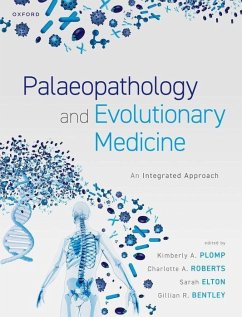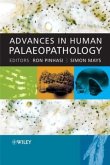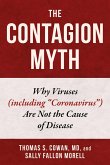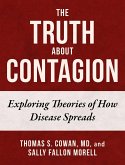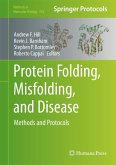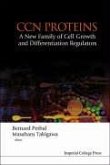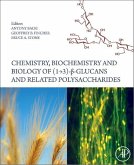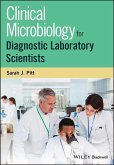Palaeopathology and Evolutionary Medicine
An Integrated Approach
Herausgeber: Plomp, Kimberly A; Bentley, Gilian R; Elton, Sarah; Roberts, Charlotte A
Palaeopathology and Evolutionary Medicine
An Integrated Approach
Herausgeber: Plomp, Kimberly A; Bentley, Gilian R; Elton, Sarah; Roberts, Charlotte A
- Gebundenes Buch
- Merkliste
- Auf die Merkliste
- Bewerten Bewerten
- Teilen
- Produkt teilen
- Produkterinnerung
- Produkterinnerung
First book to highlight the benefits of using palaeopathological research to answer questions about the evolution of disease and its application to current health problems, as well as the benefits of using evolutionary thinking in medicine to help interpret historical disease processes.
Andere Kunden interessierten sich auch für
![Advances in Human Palaeopathology Advances in Human Palaeopathology]() Advances in Human Palaeopathology220,99 €
Advances in Human Palaeopathology220,99 €![The Contagion Myth The Contagion Myth]() Thomas S CowanThe Contagion Myth29,99 €
Thomas S CowanThe Contagion Myth29,99 €![The Truth about Contagion The Truth about Contagion]() Thomas S CowanThe Truth about Contagion28,99 €
Thomas S CowanThe Truth about Contagion28,99 €![Protein Folding, Misfolding, and Disease Protein Folding, Misfolding, and Disease]() Andrew F. Hill / Kevin J. Barnham / Stephen P. et al. Bottomley (Hrsg.)Protein Folding, Misfolding, and Disease77,99 €
Andrew F. Hill / Kevin J. Barnham / Stephen P. et al. Bottomley (Hrsg.)Protein Folding, Misfolding, and Disease77,99 €![Ccn Proteins: A New Family of Cell Growth and Differentiation Regulators Ccn Proteins: A New Family of Cell Growth and Differentiation Regulators]() Masaharu TakigawaCcn Proteins: A New Family of Cell Growth and Differentiation Regulators183,99 €
Masaharu TakigawaCcn Proteins: A New Family of Cell Growth and Differentiation Regulators183,99 €![Chemistry, Biochemistry, and Biology of 1-3 Beta Glucans and Related Polysaccharides Chemistry, Biochemistry, and Biology of 1-3 Beta Glucans and Related Polysaccharides]() Chemistry, Biochemistry, and Biology of 1-3 Beta Glucans and Related Polysaccharides150,99 €
Chemistry, Biochemistry, and Biology of 1-3 Beta Glucans and Related Polysaccharides150,99 €![Clinical Microbiology for Diagnostic Laboratory Scientists Clinical Microbiology for Diagnostic Laboratory Scientists]() Sarah J PittClinical Microbiology for Diagnostic Laboratory Scientists109,99 €
Sarah J PittClinical Microbiology for Diagnostic Laboratory Scientists109,99 €-
-
-
First book to highlight the benefits of using palaeopathological research to answer questions about the evolution of disease and its application to current health problems, as well as the benefits of using evolutionary thinking in medicine to help interpret historical disease processes.
Hinweis: Dieser Artikel kann nur an eine deutsche Lieferadresse ausgeliefert werden.
Hinweis: Dieser Artikel kann nur an eine deutsche Lieferadresse ausgeliefert werden.
Produktdetails
- Produktdetails
- Verlag: Oxford University Press
- Seitenzahl: 384
- Erscheinungstermin: 3. Oktober 2022
- Englisch
- Abmessung: 250mm x 195mm x 25mm
- Gewicht: 1012g
- ISBN-13: 9780198849711
- ISBN-10: 0198849710
- Artikelnr.: 66136969
- Herstellerkennzeichnung
- Libri GmbH
- Europaallee 1
- 36244 Bad Hersfeld
- gpsr@libri.de
- Verlag: Oxford University Press
- Seitenzahl: 384
- Erscheinungstermin: 3. Oktober 2022
- Englisch
- Abmessung: 250mm x 195mm x 25mm
- Gewicht: 1012g
- ISBN-13: 9780198849711
- ISBN-10: 0198849710
- Artikelnr.: 66136969
- Herstellerkennzeichnung
- Libri GmbH
- Europaallee 1
- 36244 Bad Hersfeld
- gpsr@libri.de
Kimberly A. Plomp is a bioarchaeologist with expertise in palaeopathology and human evolution. She has a PhD in Anthropology and Archaeology from Durham University, UK and has held three postdoctoral posts at Simon Fraser University, Canada and the University of Liverpool, UK. She is now an Associate Professorial Fellow and Chief of the Osteoarchaeology laboratory in the Archaeological Studies Program at the University of the Philippines. Charlotte A. Roberts is a bioarchaeologist with a background in general nursing. She has specific expertise in palaeopathology and has conducted research and teaching in bioarchaeology for around 40 years. Her academic career started at the University of Bradford, UK but worked at Durham University, UK for 20 years before retiring. Her key research areas focus on the origin, evolution and history of infectious diseases, she is passionate about engaging the public with her research, and works on ethical implications of studying archaeological human remains. She is a Fellow of the British Academy. Gillian Bentley is a biosocial anthropologist who was previously a bioarchaeologist specialising in the ancient Near East. She later retrained in bioanthropology and has since focused on reproductive ecology, early life development, and migrant health. She has held a strong interest in evolutionary medicine for several years, publishing numerous articles in the field and creating one of the first Masters in Evolutionary Medicine at Durham University, UK. She is an Associate Editor of OUP's journal Evolution, Medicine and Public Health and was a founding member of the International Society for Evolution, Medicine and Public Health for which she is also a council member. Sarah Elton is Professor of Evolutionary Anthropology at Durham University, UK having previously worked at the Hull York Medical School, where she developed an interest in critical approaches to evolutionary medicine, complementing her overarching research interest on the ecological context for human evolution. Her primary research focuses on primate morphology, ecology and biogeography. In the field of evolutionary medicine, she co-edited, with Paul O'Higgins, Medicine and Evolution: Current Applications, Future Prospects (CRC Press, 2008). She co-authored, with Stanley Ulijaszek and Neil Mann, Evolving Human Nutrition: Implications for Public Health, (Cambridge University Press, 2012), and has also written on evolutionary nutrition for an international medical audience.
* Foreword
* 1: Kimberly A. Plomp, Charlotte A. Roberts, Sarah Elton, and Gillian
R. Bentley: What's it all about? A legacy for the next generation of
scholars in evolutionary medicine and palaeopathology
* 2: Julia Gamble and Gillian Bentley: Developmental origins of health
and disease (DOHaD): perspectives from bioarchaeology
* 3: Kimberly A. Plomp, Ella Been and Mark Collard: Acquired spinal
conditions in humans: the roles of spinal curvature, the shape of the
lumbar vertebrae, and evolutionary history
* 4: Sarah-Louise Decrausaz and Frances Galloway: Birthing humans in
the past, the present and future: how birth can be approached
holistically through an evolutionary medicine lens
* 5: Nicole Burt and Alexandra M. Greenwald: Isotopic reconstruction of
ancient human diet and health: implications for evolutionary medicine
* 6: Tanya M. Smith and Christina Warinner: Developmental,
evolutionary, and behavioural perspectives on oral health
* 7: Malcolm C. Lillie and Sarah Elton: Palaeoecology: considering
proximate and ultimate influences in human diets and environmental
responses in the early Holocene Dnieper River region of Ukraine
* 8: Kirsten Bos and Sharon N. DeWitte: Human resistance and the
evolution of plague in Medieval Europe
* 9: Charlotte Roberts, David M. Scollard and Vinicius M. Fava: Leprosy
Is down but not yet out: new insights shed light on its origin and
evolution
* 10: Charlotte A. Roberts, Peter D.O. Davies, Kelly E. Blevins and
Anne C. Stone: Preventable and curable, but still a global problem:
tuberculosis from an evolutionary perspective
* 11: Marissa L. Ledger and Piers D. Mitchell: Evolutionary
perspectives on human parasitic infection: ancient parasites to
modern medicine.
* 12: Randall C. Thompson, Chris J. Rowan, Nicholas W. Weis, M. Linda
Sutherland, Caleb E. Finch, Michaela Binder, Charlotte A. Roberts and
Gregory S. Thomas: Cardiovascular disease in ancient people and
contemporary implications
* 13: Carina Marques, Zachary Compton and Amy M. Boddy: Connecting
palaeopathology and evolutionary medicine to cancer research: past
and present
* 14: Daniel H. Temple and Ashley N. Edes: Stress in bioarchaeology,
epidemiology, and evolutionary medicine: an integrated conceptual
model of shared history from the descriptive to the developmental
* 15: Jonathan C. Wells, Nelissa Ling, Jay T. Stock, Hallie Buckley and
William R. Leonard: Metabolic diseases in bioarchaeology: an
evolutionary medicine approach
* 16: Ryan P. Harrod and Anna J. Osterholtz: The palaeopathology of
traumatic injuries: an evolutionary medicine perspective
* 17: Elizabeth W. Uhl and Richard Thomas: Uncovering tales of
transmission: an integrated palaeopathological perspective on the
evolution of shared human and animal pathogens
* 18: Gillian Bentley, Charlotte A. Roberts, Sarah Elton and Kimberly
A. Plomp: Now you have read the book, what next?
* Afterword
* 1: Kimberly A. Plomp, Charlotte A. Roberts, Sarah Elton, and Gillian
R. Bentley: What's it all about? A legacy for the next generation of
scholars in evolutionary medicine and palaeopathology
* 2: Julia Gamble and Gillian Bentley: Developmental origins of health
and disease (DOHaD): perspectives from bioarchaeology
* 3: Kimberly A. Plomp, Ella Been and Mark Collard: Acquired spinal
conditions in humans: the roles of spinal curvature, the shape of the
lumbar vertebrae, and evolutionary history
* 4: Sarah-Louise Decrausaz and Frances Galloway: Birthing humans in
the past, the present and future: how birth can be approached
holistically through an evolutionary medicine lens
* 5: Nicole Burt and Alexandra M. Greenwald: Isotopic reconstruction of
ancient human diet and health: implications for evolutionary medicine
* 6: Tanya M. Smith and Christina Warinner: Developmental,
evolutionary, and behavioural perspectives on oral health
* 7: Malcolm C. Lillie and Sarah Elton: Palaeoecology: considering
proximate and ultimate influences in human diets and environmental
responses in the early Holocene Dnieper River region of Ukraine
* 8: Kirsten Bos and Sharon N. DeWitte: Human resistance and the
evolution of plague in Medieval Europe
* 9: Charlotte Roberts, David M. Scollard and Vinicius M. Fava: Leprosy
Is down but not yet out: new insights shed light on its origin and
evolution
* 10: Charlotte A. Roberts, Peter D.O. Davies, Kelly E. Blevins and
Anne C. Stone: Preventable and curable, but still a global problem:
tuberculosis from an evolutionary perspective
* 11: Marissa L. Ledger and Piers D. Mitchell: Evolutionary
perspectives on human parasitic infection: ancient parasites to
modern medicine.
* 12: Randall C. Thompson, Chris J. Rowan, Nicholas W. Weis, M. Linda
Sutherland, Caleb E. Finch, Michaela Binder, Charlotte A. Roberts and
Gregory S. Thomas: Cardiovascular disease in ancient people and
contemporary implications
* 13: Carina Marques, Zachary Compton and Amy M. Boddy: Connecting
palaeopathology and evolutionary medicine to cancer research: past
and present
* 14: Daniel H. Temple and Ashley N. Edes: Stress in bioarchaeology,
epidemiology, and evolutionary medicine: an integrated conceptual
model of shared history from the descriptive to the developmental
* 15: Jonathan C. Wells, Nelissa Ling, Jay T. Stock, Hallie Buckley and
William R. Leonard: Metabolic diseases in bioarchaeology: an
evolutionary medicine approach
* 16: Ryan P. Harrod and Anna J. Osterholtz: The palaeopathology of
traumatic injuries: an evolutionary medicine perspective
* 17: Elizabeth W. Uhl and Richard Thomas: Uncovering tales of
transmission: an integrated palaeopathological perspective on the
evolution of shared human and animal pathogens
* 18: Gillian Bentley, Charlotte A. Roberts, Sarah Elton and Kimberly
A. Plomp: Now you have read the book, what next?
* Afterword
* Foreword
* 1: Kimberly A. Plomp, Charlotte A. Roberts, Sarah Elton, and Gillian
R. Bentley: What's it all about? A legacy for the next generation of
scholars in evolutionary medicine and palaeopathology
* 2: Julia Gamble and Gillian Bentley: Developmental origins of health
and disease (DOHaD): perspectives from bioarchaeology
* 3: Kimberly A. Plomp, Ella Been and Mark Collard: Acquired spinal
conditions in humans: the roles of spinal curvature, the shape of the
lumbar vertebrae, and evolutionary history
* 4: Sarah-Louise Decrausaz and Frances Galloway: Birthing humans in
the past, the present and future: how birth can be approached
holistically through an evolutionary medicine lens
* 5: Nicole Burt and Alexandra M. Greenwald: Isotopic reconstruction of
ancient human diet and health: implications for evolutionary medicine
* 6: Tanya M. Smith and Christina Warinner: Developmental,
evolutionary, and behavioural perspectives on oral health
* 7: Malcolm C. Lillie and Sarah Elton: Palaeoecology: considering
proximate and ultimate influences in human diets and environmental
responses in the early Holocene Dnieper River region of Ukraine
* 8: Kirsten Bos and Sharon N. DeWitte: Human resistance and the
evolution of plague in Medieval Europe
* 9: Charlotte Roberts, David M. Scollard and Vinicius M. Fava: Leprosy
Is down but not yet out: new insights shed light on its origin and
evolution
* 10: Charlotte A. Roberts, Peter D.O. Davies, Kelly E. Blevins and
Anne C. Stone: Preventable and curable, but still a global problem:
tuberculosis from an evolutionary perspective
* 11: Marissa L. Ledger and Piers D. Mitchell: Evolutionary
perspectives on human parasitic infection: ancient parasites to
modern medicine.
* 12: Randall C. Thompson, Chris J. Rowan, Nicholas W. Weis, M. Linda
Sutherland, Caleb E. Finch, Michaela Binder, Charlotte A. Roberts and
Gregory S. Thomas: Cardiovascular disease in ancient people and
contemporary implications
* 13: Carina Marques, Zachary Compton and Amy M. Boddy: Connecting
palaeopathology and evolutionary medicine to cancer research: past
and present
* 14: Daniel H. Temple and Ashley N. Edes: Stress in bioarchaeology,
epidemiology, and evolutionary medicine: an integrated conceptual
model of shared history from the descriptive to the developmental
* 15: Jonathan C. Wells, Nelissa Ling, Jay T. Stock, Hallie Buckley and
William R. Leonard: Metabolic diseases in bioarchaeology: an
evolutionary medicine approach
* 16: Ryan P. Harrod and Anna J. Osterholtz: The palaeopathology of
traumatic injuries: an evolutionary medicine perspective
* 17: Elizabeth W. Uhl and Richard Thomas: Uncovering tales of
transmission: an integrated palaeopathological perspective on the
evolution of shared human and animal pathogens
* 18: Gillian Bentley, Charlotte A. Roberts, Sarah Elton and Kimberly
A. Plomp: Now you have read the book, what next?
* Afterword
* 1: Kimberly A. Plomp, Charlotte A. Roberts, Sarah Elton, and Gillian
R. Bentley: What's it all about? A legacy for the next generation of
scholars in evolutionary medicine and palaeopathology
* 2: Julia Gamble and Gillian Bentley: Developmental origins of health
and disease (DOHaD): perspectives from bioarchaeology
* 3: Kimberly A. Plomp, Ella Been and Mark Collard: Acquired spinal
conditions in humans: the roles of spinal curvature, the shape of the
lumbar vertebrae, and evolutionary history
* 4: Sarah-Louise Decrausaz and Frances Galloway: Birthing humans in
the past, the present and future: how birth can be approached
holistically through an evolutionary medicine lens
* 5: Nicole Burt and Alexandra M. Greenwald: Isotopic reconstruction of
ancient human diet and health: implications for evolutionary medicine
* 6: Tanya M. Smith and Christina Warinner: Developmental,
evolutionary, and behavioural perspectives on oral health
* 7: Malcolm C. Lillie and Sarah Elton: Palaeoecology: considering
proximate and ultimate influences in human diets and environmental
responses in the early Holocene Dnieper River region of Ukraine
* 8: Kirsten Bos and Sharon N. DeWitte: Human resistance and the
evolution of plague in Medieval Europe
* 9: Charlotte Roberts, David M. Scollard and Vinicius M. Fava: Leprosy
Is down but not yet out: new insights shed light on its origin and
evolution
* 10: Charlotte A. Roberts, Peter D.O. Davies, Kelly E. Blevins and
Anne C. Stone: Preventable and curable, but still a global problem:
tuberculosis from an evolutionary perspective
* 11: Marissa L. Ledger and Piers D. Mitchell: Evolutionary
perspectives on human parasitic infection: ancient parasites to
modern medicine.
* 12: Randall C. Thompson, Chris J. Rowan, Nicholas W. Weis, M. Linda
Sutherland, Caleb E. Finch, Michaela Binder, Charlotte A. Roberts and
Gregory S. Thomas: Cardiovascular disease in ancient people and
contemporary implications
* 13: Carina Marques, Zachary Compton and Amy M. Boddy: Connecting
palaeopathology and evolutionary medicine to cancer research: past
and present
* 14: Daniel H. Temple and Ashley N. Edes: Stress in bioarchaeology,
epidemiology, and evolutionary medicine: an integrated conceptual
model of shared history from the descriptive to the developmental
* 15: Jonathan C. Wells, Nelissa Ling, Jay T. Stock, Hallie Buckley and
William R. Leonard: Metabolic diseases in bioarchaeology: an
evolutionary medicine approach
* 16: Ryan P. Harrod and Anna J. Osterholtz: The palaeopathology of
traumatic injuries: an evolutionary medicine perspective
* 17: Elizabeth W. Uhl and Richard Thomas: Uncovering tales of
transmission: an integrated palaeopathological perspective on the
evolution of shared human and animal pathogens
* 18: Gillian Bentley, Charlotte A. Roberts, Sarah Elton and Kimberly
A. Plomp: Now you have read the book, what next?
* Afterword

